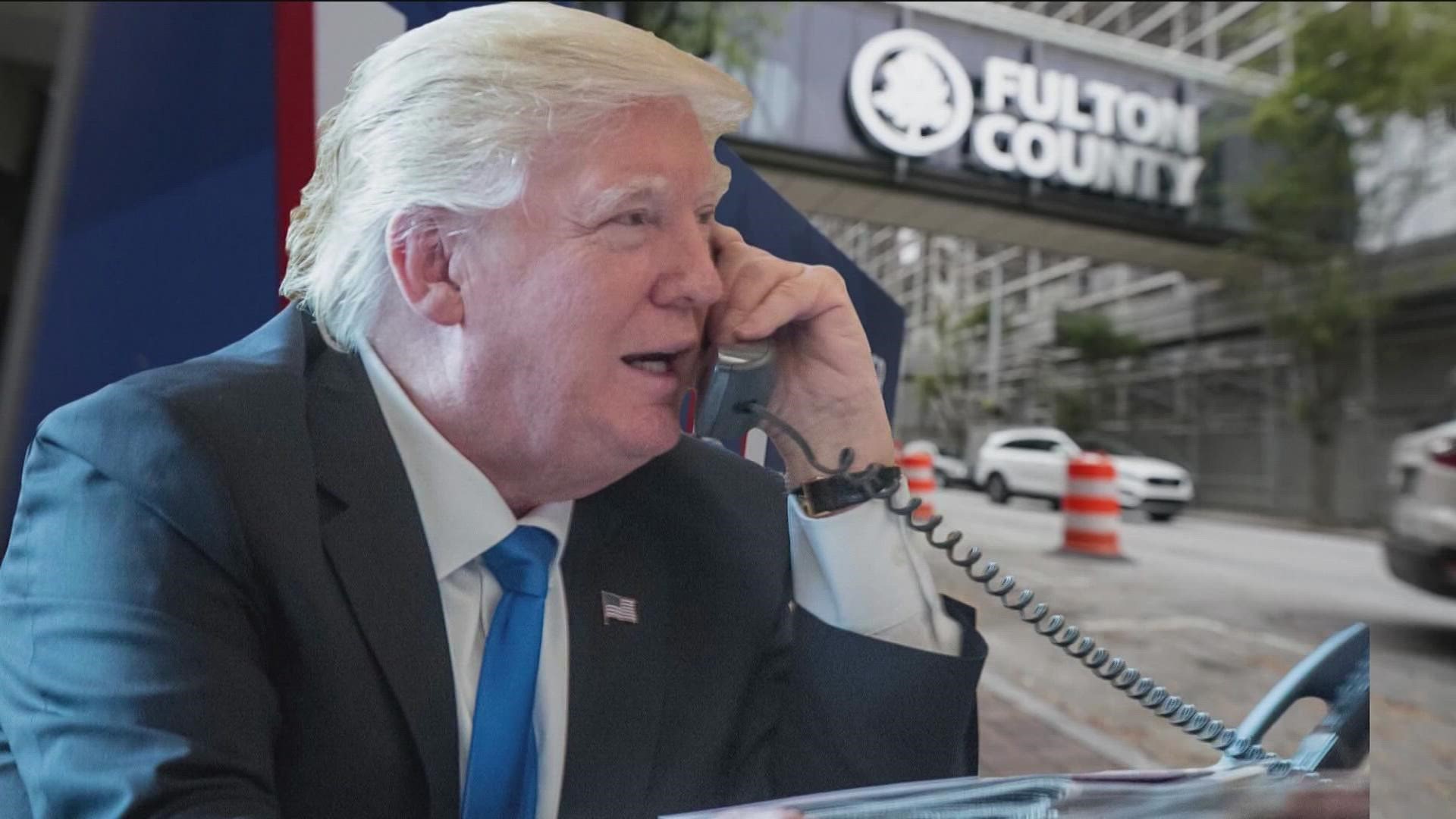ATLANTA — If former President Donald Trump and a group of his allies will be criminally charged for attempting to overturn Georgia's 2020 election, the decision will come some time this summer.
To do so, Willis will have to present evidence before a regular grand jury.
Fulton County District Attorney Fani Willis told 11Alive Thursday that earliest one of the county's two grand juries could hear evidence related to the investigation is July 17. Jurors will be selected July 11, but won't hear cases until the following week.
RELATED: Fulton DA: Decision on charges for Trump and allies in 2020 election investigation to come in summer
The final decision is expected to come before Sept. 1, Willis said in letters to county Sheriff Pat Labat and Atlanta Police Chief Darin Schierbaum earlier this week.
But wait: wasn't there already a grand jury? Yes, but that one was a specific type of jury that couldn't issue indictments.
The Fulton County Special Purpose Grand Jury — the panel that initially investigated potential crimes by Trump and others — lacked the power to bring charges thanks to a decade-old decision from the Court of Appeals of Georgia.
State statues and interviews with former Gwinnett County District Attorney Danny Porter helped outline the procedures. Here's what you need to know:
The differences between a regular grand jury and a special purpose grand jury
There are two distinct types of grand juries established in Georgia law: regular grand juries and special purpose grand juries.
Both share many of the same functions. A special purpose grand jury can be impaneled to investigate "any alleged violation of the laws of this state or any other matter subject to investigation by grand juries," according to Georgia law.
The chief judge of the superior court, a district attorney or any other public official may request the creation of a special purpose grand jury. A majority of the county's superior court judges must approve the jury's formation.
A special purpose grand jury differentiates itself from regular grand juries in three specific ways:
Special purpose grand juries can’t issue indictments. Instead, the special purpose grand jury can issue a comprehensive final report that summarizes its findings. The order that created the Fulton County Special Purpose Grand Jury said it "may make recommendations concerning criminal prosecution as it shall see fit" based on information uncovered during the course of its investigation. The Fulton panel's final report was finished in January and remains mostly secret. However, foreperson Emily Kohrs previously said the jury recommended indictments for more than a dozen people.
Special purpose grand juries are convened for a specific purpose. A regular grand jury will hear a number of different cases during its term. A special purpose grand jury will focus on a specific case or event. They are rarely used and typically convened for complex, public corruption investigation.
Special purpose grand juries work until their investigations are complete. Regular grand juries are impaneled for specific time periods. From creation to dissolution, the Fulton County Special Purpose Grand Jury existed for roughly eight months. In Fulton County, a regular grand jury meets for one court term — which is two months. Court terms can differ by county. In Gwinnett County, a court term is three months.
Why couldn't the special purpose grand jury issue indictments?
The notion that special purpose grand juries in Georgia can't issue indictments is relatively new.
Special purpose grand juries were thought to have the same powers as a regular grand jury, but a 2011 ruling by the Court of Appeals of Georgia changed the procedures.
The case, Kenerly v. State, stemmed from a Gwinnett County special grand jury investigation into real estate transactions between the county's Board of Commissioners and certain developers, Porter told 11Alive. He served as the county's top prosecutor at the time.
The panel indicted Gwinnett County Commissioner Kevin Kenerly with one count of bribery and two counts of failing to disclose financial interest.
Kenerly objected, arguing the special jury lacked the power to issue criminal indictments. The state argued that Georgia law gives special grand juries that power because regular grand juries issue indictments. State law, they argued, gives both bodies the same powers.
The Court of Appeals of Georgia sided with Kenerly.
To give a special purpose grand jury indictment powers, the Georgia General Assembly would have to change state law, the court ruled.
"The State argues that a special purpose grand jury has all the power and privileges of a grand jury ... but we find no statutory or case law demanding such a conclusion, and indeed the rules of statutory interpretation suggest otherwise," the state appeals court ruled.
Fulton County Superior Court judges voted in January 2022 to impanel the special purpose grand jury at Willis' request. In May 2022, the jurors were sworn in, and the jury completed its work in January 2023.
Willis has until Monday, May 1 to respond to a motion from Trump's legal team that seeks to stall the investigation and quash the special jury's report.
When asked by 11Alive how she plans to respond to the former president, Willis said "in writing."
11Alive reporter Tracey Amick-Peer contributed to this story.

